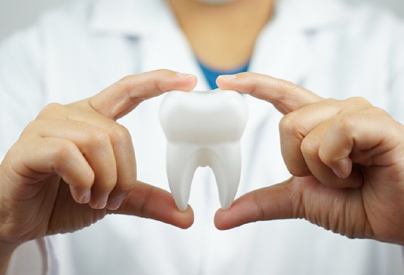
Wisdom teeth, or third molars, are often the last to emerge and can sometimes be a source of dental issues, including cavities. Understanding the relationship between wisdom teeth and cavities can help you maintain better oral health and avoid complications.
If you’re seeking general information about wisdom tooth removal in Manish Nagar, understanding the procedure and what to expect can help ease any concerns. In this blog, we’ll explore why wisdom teeth are susceptible to cavities, how to prevent them, and what steps to take if you encounter dental issues with these teeth.
Why Are Wisdom Teeth Prone to Cavities?
Wisdom teeth are located at the back of your mouth, making them harder to clean effectively. This placement, combined with their unique developmental characteristics, makes them particularly vulnerable to cavities:
1. Difficult Access to Cleaning
- Limited Visibility: Wisdom teeth are at the back of the mouth, making them difficult to reach with a toothbrush and floss.
- Crowding: They often emerge into a crowded space, creating tight gaps between teeth where plaque and food particles can accumulate.
2. Irregular Shape
- Deep Grooves: Wisdom teeth often have deeper grooves and fissures in their enamel, which can trap food and bacteria, increasing the risk of decay.
- Misalignment: If wisdom teeth are not properly aligned, they can overlap with other teeth or grow at odd angles, making them even harder to clean.
3. Partial Eruption
- Partially Erupted Teeth: When wisdom teeth only partially emerge through the gum, they can create pockets where food and bacteria can get trapped, leading to decay and gum issues.
How to Prevent Cavities in Wisdom Teeth
Preventing cavities in wisdom teeth involves a combination of good oral hygiene practices and regular dental check-ups. Here’s how you can protect these teeth:
1. Maintain Excellent Oral Hygiene
- Brush Thoroughly: Use a toothbrush with a small head and soft bristles to reach the back of your mouth and clean around your wisdom teeth. Brush at least twice a day for two minutes each time.
- Floss Daily: Flossing helps remove food particles and plaque between your teeth and around your wisdom teeth. If traditional floss is challenging to use, consider using floss picks or water flossers.
2. Use Fluoride Products
- Fluoride Toothpaste: Choose a toothpaste with fluoride, which helps strengthen tooth enamel and make it more resistant to decay.
- Fluoride Rinses: Consider using a fluoride mouthwash to provide extra protection against cavities.
3. Regular Dental Check-Ups
- Routine Visits: Schedule regular dental check-ups and cleanings every six months. Your dentist in Manish Nagar can monitor the condition of your wisdom teeth and identify any early signs of cavities or other issues.
- X-rays: Your dentist may recommend periodic X-rays to assess the development and positioning of your wisdom teeth, helping to catch problems before they become severe.
4. Healthy Diet
- Limit Sugary Foods: Reduce your intake of sugary and acidic foods and drinks, which can contribute to tooth decay. Opt for a balanced diet rich in fruits, vegetables, and whole grains.
- Drink Water: Drinking plenty of water helps rinse away food particles and bacteria, reducing the risk of cavities.
What to Do if You Have Cavities in Your Wisdom Teeth
If you suspect you have a cavity in your wisdom teeth or are experiencing symptoms like pain, sensitivity, or visible discoloration, here’s what you should do:
1. Consult Your Dentist
- Evaluation: Visit your dentist for a thorough examination. They will assess the extent of the decay and recommend appropriate treatment options.
- Treatment Options: Depending on the severity of the cavity, treatment may include dental fillings, crowns, or, in some cases, extraction of the affected wisdom tooth.
2. Follow Treatment Recommendations
- Complete Treatment: Follow your dentist’s recommendations for treatment and follow-up care. This may include scheduling additional appointments for restorative work or monitoring the tooth’s condition.
3. Consider Wisdom Teeth Removal
- Preventive Measure: Sometimes, your dentist may recommend wisdom tooth extractions in Manish Nagar if they are severely decayed, causing other dental problems, or are unlikely to function properly. Removal can prevent future complications and preserve your overall oral health.
Key Takeaways
- Wisdom Teeth Vulnerability: Wisdom teeth are prone to cavities due to their location, irregular shape, and potential for partial eruption.
- Prevention is crucial: To protect your wisdom teeth from cavities, maintain excellent oral hygiene, use fluoride products, follow a healthy diet, and schedule regular dental check-ups.
- Seek Professional Care: If you notice symptoms of cavities, consult your dentist promptly to address the issue and prevent further complications.
Conclusion
Caring for your wisdom teeth is essential to maintaining overall oral health. By understanding the unique challenges associated with these teeth and taking proactive steps to prevent cavities, you can keep your smile healthy and avoid common dental problems. Regular visits to your dentist and diligent home care are key to ensuring that your wisdom teeth and entire mouth remain in top condition. If you have concerns about your wisdom teeth or oral health, don’t hesitate to contact your dental professional for personalized advice and treatment.







